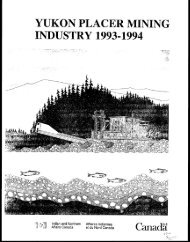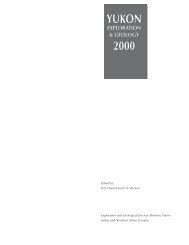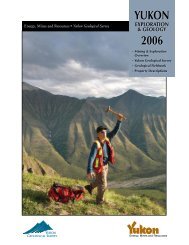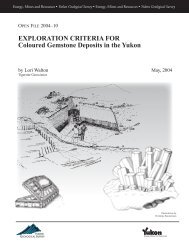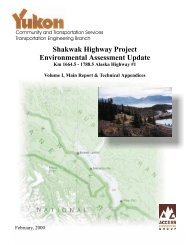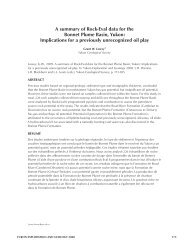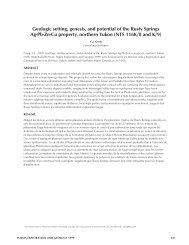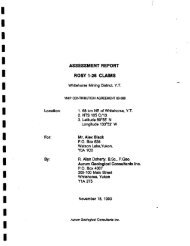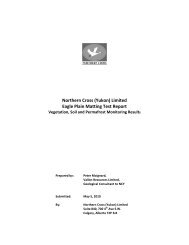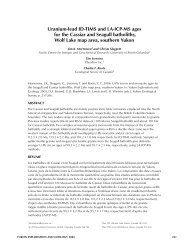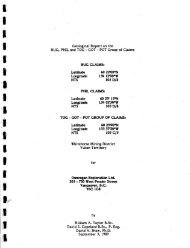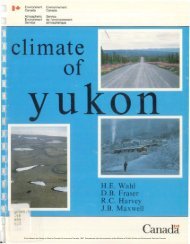WhiteCAP_Plan_01SEPT..
WhiteCAP_Plan_01SEPT..
WhiteCAP_Plan_01SEPT..
You also want an ePaper? Increase the reach of your titles
YUMPU automatically turns print PDFs into web optimized ePapers that Google loves.
Glossary of Terms<br />
Adaptation is the ability of a system to adjust to climate change, either to moderate<br />
potential damages, to take advantage of opportunities, or to cope with the consequences<br />
of climate change (IPCC, 2007a).<br />
Adaptive Capacity is the ability of a system to adjust to climate change, either to<br />
moderate potential damages, to take advantage of opportunities, or to cope with<br />
consequences (IPCC, 2007a).<br />
Evapotranspiration is the amount of water returned to the atmosphere from the<br />
combination of evaporation and transpiration (the passage of moisture through the<br />
surface of plant leaves) (SNAP, 2009).<br />
Greenhouse Gases are sources of carbon dioxide emitted by humans that contribute to<br />
global warming and include carbon dioxide (CO2), methane (CH4), nitrous oxide (N2O),<br />
hydrofluorocarbons (HFCs), perfluorocarbons (PFCs), sulphur hexafluoride (SF6),<br />
hydrochlorofluorocarbons (HCFCs), chlorofluorocarbons (CFCs), the aerosol precursor<br />
and the chemically active gases sulphur dioxide (SO2), carbon monoxide (CO), nitrous<br />
oxides (NOX) and non-methane volatile organic compounds (NMVOCs) (Nebojša et al,<br />
2000).<br />
Mitigation is an action intended to reduce the onset and severity of climate change and<br />
includes strategies to reduce greenhouse gas sources and emissions and enhancing<br />
greenhouse gas sinks (IPCC, 2007a).<br />
No regrets actions refer to those adaptations that provide benefits to the community in<br />
current and future climate conditions, even if no climate change occurs (Snover et al,<br />
2007).<br />
Resilience is the capability of a system to maintain its function and structure in the face<br />
of internal and external change and to degrade gracefully when it must (Allenby and<br />
Fink, 2005: 1034).<br />
Risk Management is the systematic application of management policies, procedures<br />
and practices to the tasks of analyzing, evaluating, controlling and communicating the<br />
possibility of injury or loss due to an adverse effect to health, property, the environment<br />
or other things of value (CSA, 1997).<br />
Scenarios are an internally consistent view of what the future might turn out to be<br />
(Porter, 1985).<br />
Scenario <strong>Plan</strong>ning is a strategic planning tool for medium to long-term planning under<br />
uncertain conditions involving the assessment of multiple futures (Lindgren and<br />
Bandhold, 2003).<br />
Susceptibility is the degree to which a community is exposed to hazards (WHO, 1999).<br />
Win-win actions reduce the impacts of climate change while providing other<br />
environmental, social or economic benefits (Snover, et al, 2007).



